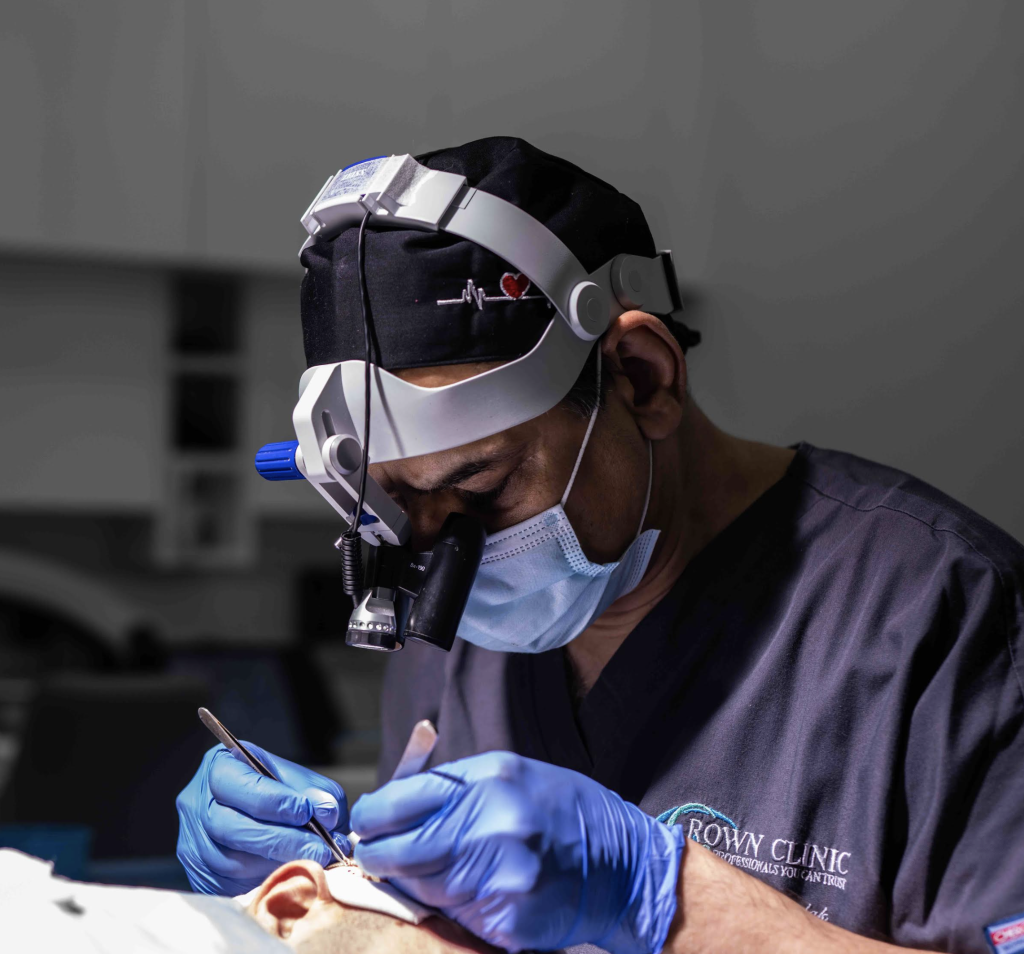
Hair loss can be a deeply personal and challenging experience for many individuals. A full, healthy head of hair is often associated with youth, vitality, and confidence, which is why hair transplantation has become an increasingly popular solution for hair loss. There is even evidence that men with a full head of hair earn more than those who are bald or balding – so there are good reasons to have one.
If you’re considering a hair transplant, it’s essential to determine whether you’re a good candidate for the procedure. In this blog, Crown Clinic’s consultant hair transplant surgeon Asim Shahmalak highlights the key factors that make someone an ideal candidate for a hair transplant.
What is a hair transplant?
It is a minimally invasive surgical procedure which involves taking hair from one part of the scalp (though other body areas can be used for donor extraction such as beard hair from the neck) where there is an excess of hair and replanting it in the areas where hair loss is occurring – normally at the front of the hairline, in the receding temple areas and across the crown.
There are two types of procedure – the most popular at Crown Clinic (used by 80% of patients) is FUE (follicular unit extraction). Individual grafts are extracted from the back and sides of the scalp and then replanted where hair loss is worst.
We also still practice the more traditional hair transplant method, FUT (follicular unit transplantation), where a strip of skin is surgically cut from the scalp and the grafts are removed from the strip under a microscope by technicians. They are then replanted in the balding areas by the surgeon in the the same way as FUE. FUT is slightly more affordable than FUE because it is less labour intensive. Dr Shahmalak can advise on the best procedure for you.
When to have a hair transplant?
At Crown Clinic we don’t operate on any patients under the age of 25 (when a patient’s pattern of baldness becomes evident). Over 25, it is best not to delay if you are experiencing hair loss and you think your appearance and mental health would be improved by a procedure.
Patients can take clinically proven drugs such as Finasteride, which is prescribed to some patients by Dr Shahmalak and is often used in conjunction with a hair transplant, to slow down or halt hair loss. But Finasteride will not help to grow new hair – just arrest the decline of the old (existing) hair. The only long term solution to hair loss is a hair transplant. All transplanted hair is permanent and should last the patient for the rest of their lives. But they still run the risk of losing more of their natural hair after a hair transplant. That is why some patients, such as Crown Clinic’s celebrity patients Jack P Shepherd and Calum Best, have had more than one procedure with Dr Shahmalak.
Is a healthy lifestyle important?
A healthy lifestyle and good overall health are essential for a successful hair transplant. Smoking, excessive alcohol consumption, and poor nutrition can negatively impact the healing process and the transplant outcome. Maintaining a healthy lifestyle sets the stage for optimal hair transplant results and long-lasting benefits.
Final thoughts
Becoming an ideal candidate for a hair transplant involves understanding the importance of factors such as age, hair type, hair colour, the extent of hair loss, overall health, and expectations. By considering these elements, you can decide whether a hair transplant is right for you.
Why not book a consultation with Dr Shahmalak today to discuss your unique needs and embark on a journey toward a fuller head of hair?
